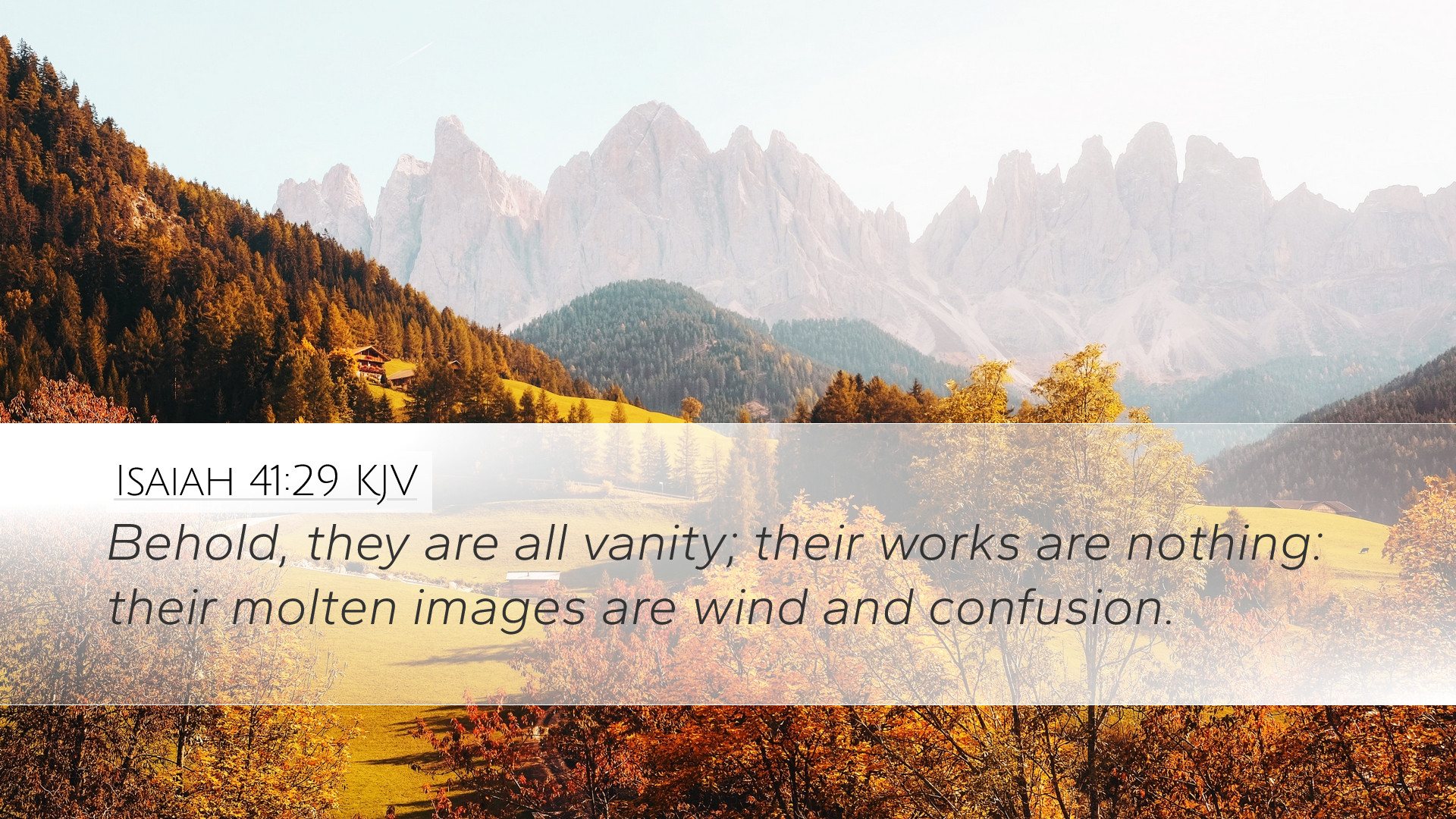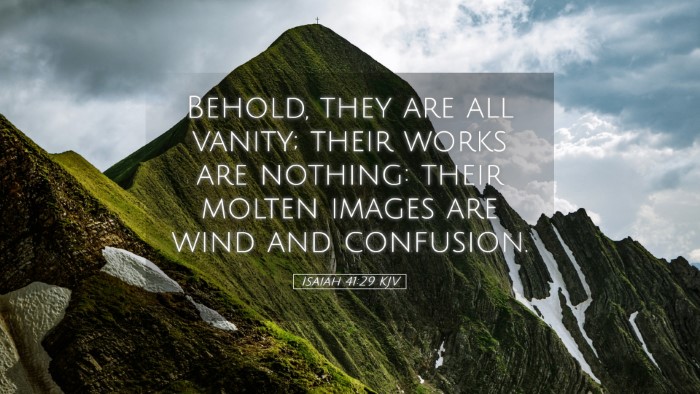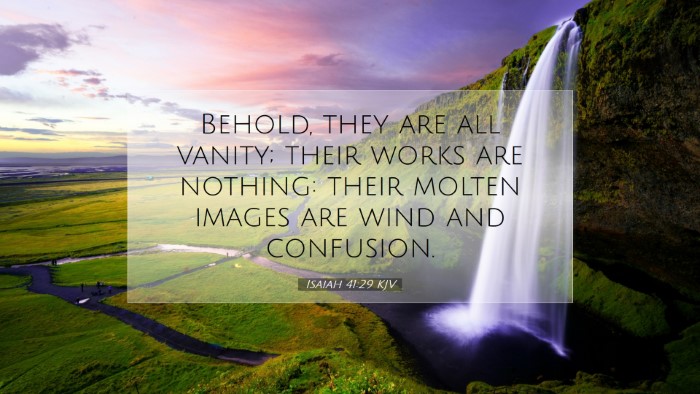Commentary on Isaiah 41:29
Verse: "Behold, they are all vanity; their works are nothing: their molten images are wind and confusion." (Isaiah 41:29)
Introduction
The prophetic words of Isaiah offer profound insights into the nature of false idols and the futility of human attempts at self-salvation or reliance on worldly systems. In Isaiah 41:29, the prophet contrasts the vanity of created things with the glory of the divine. This commentary synthesizes insights from renowned public domain commentaries to elucidate the theological and practical implications of this verse.
The Context of Isaiah 41
Prior to delving into verse 29, it is essential to understand the broader context of Isaiah 41. The chapter delivers a message of comfort and assurance to the Israelites, emphasizing God's sovereignty and power over all nations. Isaiah addresses their fears concerning their impending exile and assures them of God's perpetual presence.
Insights from Commentators
Matthew Henry
Matthew Henry emphasizes the futility and emptiness of idol worship. He notes that the pursuits of the wicked, grounded in idolatry, can lead to despair. Henry writes, "They are all vanity; their works are nothing" (Isaiah 41:29). This assertion serves as a stark reminder that all human endeavors devoid of divine approval are ultimately meaningless. Henry further explains that these molten images, representing the idols of the nations, demonstrate a profound misunderstanding of true power and dependency on God.
Albert Barnes
Albert Barnes aligns with the notion of vanity in this verse. He engages the concept of "molten images" and interprets them as artifacts crafted by human hands, devoid of life or substance. Barnes articulates that these objects represent the spiritual state of the nations that worship them, indicating a critical lack of understanding and the misplacement of devotion. He states, "Their works are nothing", pointing out that actions not aligned with God's will are devoid of true merit and significance. For Barnes, this verse illustrates the contrast between the living God and the lifeless artifacts of human ingenuity.
Adam Clarke
Adam Clarke takes a practical approach by discussing the outcome of pursuing such idols. He indicates that turning one's attention towards idols leads one away from the divine source of strength and sustenance. Clarke points out the phrase "wind and confusion", suggesting that the reliance on such images results in instability and chaos. In his view, this admonition is pertinent for both Israel and contemporary believers: if one seeks security in the fleeting, the ultimate result is disarray. Clarke stresses the importance of recognizing God's authority and power over all aspects of life rather than succumbing to the temptation of idolatry.
Theological Implications
The implications of Isaiah 41:29 resonate deeply within theological discourse. This passage speaks volumes about the nature of God as opposed to idols:
- The Sovereignty of God: The verse highlights God's ultimate control over creation and challenges the very foundation of idolatrous worship.
- The Reality of Vanity: It offers a poignant reminder that earthly pursuits are temporal and insubstantial when placed alongside God's eternal truth.
- Call to Authenticity: Believers are urged to evaluate what they give their hearts and time to, ensuring it aligns with the divine will and purpose.
Practical Applications
Isaiah 41:29 encourages readers to engage in introspective consideration of their own lives. Here are several key applications drawn from the commentaries:
- Identify Modern Idols: Reflect on what may serve as idolatrous distractions in contemporary life—whether it be wealth, status, or technology.
- Engage in True Worship: Strengthen one's relationship with God through prayer, scripture study, and community worship, fostering genuine devotion and reliance.
- Embrace God’s Sovereignty: Cultivate a deeper trust in God’s plans amid uncertainty, recognizing that human wisdom often leads to confusion and despair.
Conclusion
Isaiah 41:29 serves as a profound reminder of the distinction between the Creator and creation. The insights offered by Matthew Henry, Albert Barnes, and Adam Clarke collectively emphasize the necessity for believers to engage in authentic worship and to recognize the futility of reliance on worldly idols. As pastors, students, theologians, and scholars reflect on this text, may they be emboldened to seek the living God, who alone brings purpose and meaning to life.


